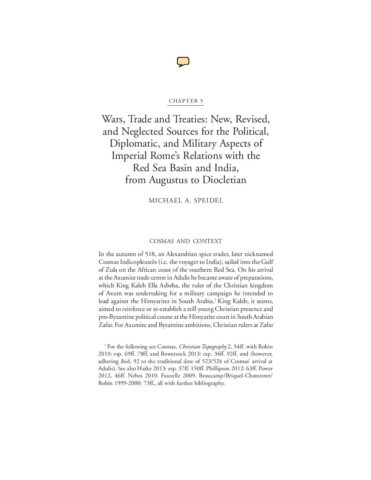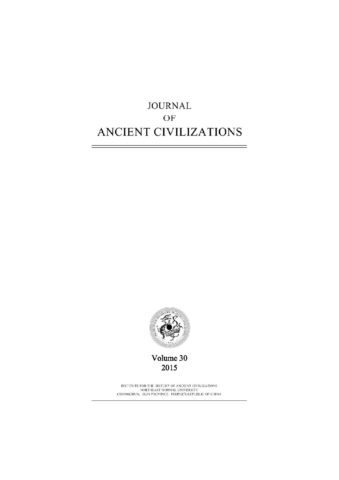Wars, Trade and Treaties. New, revised, and neglected sources for the political, diplomatic, and military aspects of imperial Rome’s relations with the Red Sea basin and India, from Augustus to Diocletian
In: K. S. Mathew (ed.), Imperial Rome, Indian Ocean Regions and Muziris: New Perspectives On Maritime Trade. New Dehli: 83-128.
This paper discusses new, revised, and neglected sources for imperial Rome’s economic, diplomatic, and military activities in the Red Sea basin and on the Indian West coast. It also explores Rome’s military and diplomatic investment


